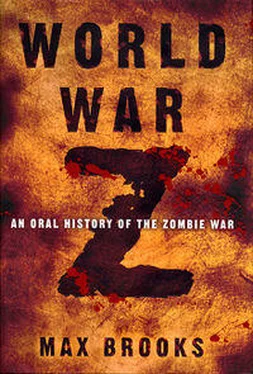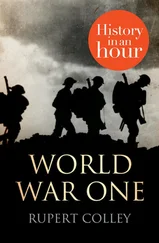I’m nor surprised char Fidel knew the rides of freedom were coming to sweep him out of power. I am surprised at how well he rode the wave.
[He laughs, gesturing to a photo on the wall of an aged Castro speaking in the Parque Central.]
Can you believe the cojones of that son of a bitch, to not only embrace the country’s new democracy, but to actually take credit for it? Genius. To personally preside over the first free elections of Cuba where his last official act was to vote himself out of power. That is why his legacy is a statue and not a bloodstain against a wall. Of course our new Latin superpower is anything but idyllic. We have hundreds of political parties and more special-interest groups than sands on our beaches. We have strikes, we have riots, we have protests, it seems, almost every day. You can see why Che ducked out right after the revolution. It’s a lot easier to blow up trains than to make them run on time. What is it that Mister Churchill used to say? “Democracy is the worst form of government, except for all the others.” [He laughs.]
Patriot’s Memorial, the Forbidden City, Beijing, China
[I suspect Admiral Xu Zhicai has chosen this particular spot on the off chance that a photographer would be present. Although no one since the war has ever remotely questioned either his or his crew’s patriotism, he is taking no chances for the eyes of “foreign readers.” Initially defensive, he consents to this interview only on the condition that I listen objectively to “his” side of the story, a demand he clings to even after I explain that there is no other.]
[Note: For the sake of clarity, Western naval designations have replaced the authentic Chinese.]
We were not traitors-I say this before I’ll say anything else. We loved our country, we loved our people, and while we may not have loved those who ruled both, we were unwaveringly loyal to our leadership.
We never would have imagined doing what we did had not the situation become so desperate. By the time Captain Chen first voiced his proposal, we were already on the brink. They were in every city, every village. In the nine and a half million square kilometers that made up our country, you couldn’t find one centimeter of peace.
The army, arrogant bastards that they were, kept insisting that they had the problem under control, that every day was the turning point and before the next snow fell upon the earth they would have the entire country pacified. Typical army thinking: overaggressive, overconfident. All you need is a group of men, or women, give them matching clothes, a few hours training, something that passes for a weapon, and you have an army, not the best army, but still an army nonetheless.
That can’t happen with the navy, any navy. Any ship, no matter how crude, requires considerable energy and materials to create. The army can replace its cannon fodder in hours; for us, it might take years. This tends to make us more pragmatic than our compatriots in green. We tend to look at a situation with a bit more … I don’t want to say caution, but perhaps more strategic conservatism. Withdraw, consolidate, husband your resources. That was the same philosophy as the Redeker Plan, but of course, the army wouldn’t listen.
They rejected Redeker?
Without the slightest consideration or internal debate. How could the army ever lose? With their vast stockpiles of conventional armaments, with their “bottomless well” of manpower… “bottomless well,” unforgivable. Do you know why we had such a population explosion during the 1950s? Because Mao believed it was the only way to win a nuclear war. This is truth, not propaganda. It was common knowledge that when the atomic dust eventually settled, only a few thousand American or Soviet survivors would be overwhelmed by tens of millions ot Chinese. Numbers, that was the philosophy of my grandparents’ generation, and it was the strategy the army was quick to adopt once our experienced, professional troops were devoured in the outbreak’s early stages. Those generals, sick, twisted old criminals sitting safely in their bunker and ordering wave after wave of conscripted teenagers into battle. Did they even think that every dead soldier was now a live zombie? Did they ever realize that, instead of drowning them in our bottomless well, we were the ones drowning, choking to death as the most populous nation on Earth found itself, for the first time in history, in danger of becoming fatally outnumbered?
That was what pushed Captain Chen over the edge. He knew what would happen it the war continued along its course, and what our chances for survival would be. If he thought that there was any hope, he would have grabbed a rifle and hurled himself at the living dead. He was convinced that soon there would be no more Chinese people, and perhaps, eventually, no more people anywhere. That was why he made his intentions known to his senior officers, declaring that we might be the only chance of preserving something of our civilization.
Did you agree with his proposal?
I didn’t even believe it at first. Escape in our boat, our nuclear submarine: This wasn’t just desertion, slinking out in the middle of a war to save our own pathetic skins. This was stealing one of the motherland’s most valuable national assets. The Admiral Zheng He was only one of three ballistic missiles subs and the newest of what the West referred to as the Type 94. She was the child of four parents: Russian assistance, black-market technology, the fruits of anti-American espionage, and, let us not forget, the culmination of nearly five thousand years of continuous Chinese history. She was the most expensive, the most advanced, the most powerful machine our nation had ever constructed. To simply steal her, like a lifeboat from the sinking ship of China, was inconceivable. It was only Captain Chen’s force of personality, his deep, fanatical patriotism that convinced me of our only alternative.
How long did it take to prepare?
Three months. It was hell. Qingdao, our home port, was in a constant state of siege. More and more army units were called in to maintain order, and each was just a little less trained, a little less equipped, a little younger, or older, than the one that came before it. Some of the surface ship captains had to donate “expendable” crew to shore up base defenses. Our perimeter was under attack almost every day. And through all of this we had to prepare and provision the boat for sea. It was supposed to be a routinely scheduled patrol; we had to smuggle on board both emergency supplies and family members.
Family members?
Oh yes, that was the cornerstone of the plan. Captain Chen knew the crew wouldn’t leave port unless their families could come with them.
How was that possible?
To find them or to smuggle them aboard?
Both.
Finding them was difficult. Most of us had family scattered throughout the country. We did our best to communicate with them, get a phone line working or send word with an army unit headed in that direction. The message was always the same: we’d be heading back out on patrol soon and their presence was required at the ceremony. Sometimes we’d try to make it more urgent, as if someone was dying and needed to see them. That was the best we could do. No one was allowed to go out and physically get them: too risky. We didn’t have multiple crews like you do on your missile boats. Every rating would be missed at sea. I pitied my shipmates, the agony of their waiting. I was lucky that my wife and children …
Children? I thought. . .
That we were only allowed one child? That law was modified years before the war, a practical solution to the problem of an unbalanced nation of only-child sons. I had twin daughters. I was lucky. My wife and children were already on base when the trouble started.
Читать дальше












